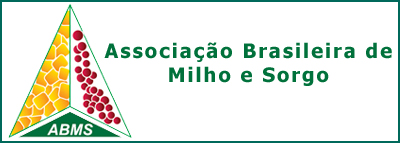PARENTAL COMMERCIAL MAIZE SELECTION FOR SILAGE PRODUCTION
DOI:
https://doi.org/10.18512/1980-6477/rbms.v7n02p%25pPalavras-chave:
melhoramento vegetal, dialelo, germoplasma.Resumo
The objectives of this study were to select maize genitors and determine the selection strategy for obtaining high quality silage maize hybrids. An experiment was conducted involving 45 hybrids obtained using a diallel scheme among commercial hybrids and four controls, in a triple lattice 7 x 7 design. The general combining ability (GCA) and specific combining ability (SCA) were significant for dry matter yield (DMY) and crude protein (CP), indicating additive and non-additive gene effects in genetic control. Only GCA was significant for plant height (PH), green matter yield (GMY) and hemicelluloses (HEM), which indicates a greater importance of additive than non-additive genetic effects in genetic control. The GCA and SCA of neutral detergent fiber (NDF) and acid detergent fiber (ADF) did not differ significantly between the hybrids, but there was a variance of 33% to 49% for NDF and 15 to 24% for ADF. The cultivars P30F90 and SHS4070 were the most recommended for increasing PH, GMY and DMY, while 2B619 and DKB466 were recommended to increase CP, and BRS3003 and AG1051 to reduce HEM. The hybrid combinations XB8028 x DKB 466, Valent x CD307, Valent x DKB466, SHS4070 x AG1051, BRS3003 x 2B619 and 2B619 x AG1051 are promising for maize silage production, because of their associated productive and qualitative traits.
Downloads
Publicado
Como Citar
Edição
Seção
Licença
Autores que publicam nesta revista concordam com os seguintes termos:- Autores mantém os direitos autorais e concedem à revista o direito de primeira publicação, com o trabalho simultaneamente licenciado sob a Creative Commons Attribution License que permitindo o compartilhamento do trabalho com reconhecimento da autoria do trabalho e publicação inicial nesta revista.
- Autores têm autorização para assumir contratos adicionais separadamente, para distribuição não-exclusiva da versão do trabalho publicada nesta revista (ex.: publicar em repositório institucional ou como capítulo de livro), com reconhecimento de autoria e publicação inicial nesta revista.
- Autores têm permissão e são estimulados a publicar e distribuir seu trabalho online (ex.: em repositórios institucionais ou na sua página pessoal) a qualquer ponto antes ou durante o processo editorial, já que isso pode gerar alterações produtivas, bem como aumentar o impacto e a citação do trabalho publicado



